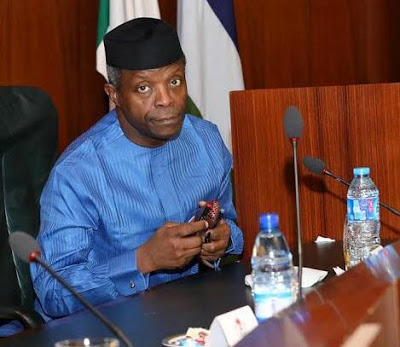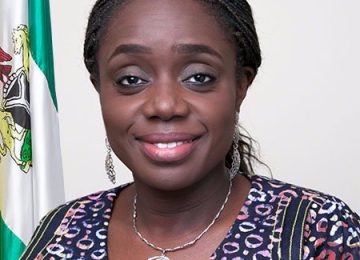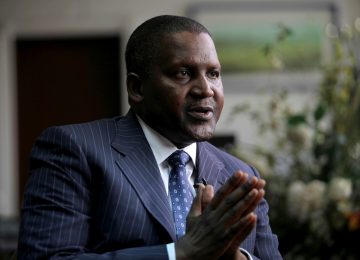Vice-President, Professor Yemi Osinbajo on Thursday in Abuja said African economies were improving and performing better than the projected global outlook.
Osinbajo spoke at the opening of a two-day High-Level Policy and Private Sector Trade and Investment Facilitation Forum, with the theme, Facilitating Trade and Investment for Development.
The World Bank global outlook for Sub-Saharan Africa for the year was 2.6 per cent growth and 3.2 per cent in 2018.
“Consumer spending is projected to reach 1.4 trillion dollars in the next three years while business-to-business spending is expected to reach 3.5 trillion dollars in the next eight years.
“African economies are doing better than ever before despite the difficult global economic environment.
“GDP growth rate will average 2.2 per cent in 2016 and is estimated to rise to 3.4 per cent this year and to 4.3 per cent in 2018 all above global averages,’’ he said.
Osinbajo said 12 African countries grew at above five per cent in 2016 while 20 others grew at between three per cent and five per cent.
“And in order to demonstrate that resource-dependence is no longer determinant on growth but trade and investment, most of the best performing countries are the non-oil or the non-commodity-dependent economies.
“Cote d’Ivoire at 8.2 per cent, Ethiopia at eight per cent, Tanzania at 7.2 per cent, Senegal at 6.7 per cent and Rwanda and Kenya at about 6 per cent respectively, African economies are performing much better than the global outlook.
“It is evident that reason for the remarkable success for these economies is good governance, enabling business environments, especially for the private sector and markets to thrive.’’
Other reasons for the growth are macro-economic stability, large markets, rising domestic demand and growing intra-African trade, he said.
“The pace and commitment also worthy of note is that African economies accounted for 30 per cent of all global improvements in business and regulatory reforms in 2016,’’ the vice-president said.
He lauded the fact that Nigeria moved up 24 places from 169 out of 190 economies collated by the World Bank.
Osinbajo said the World Bank Doing Business 2017 showed that 24 out of 48 economies in sub-Saharan Africa had at least one business regulatory reform in the previous year making the continent the second fastest growing economy for Foreign Direct Investments (FDI).
He also said FDI to Africa in 2016 stood at 56.2 billion dollars and was expected to rise to 57.5 billion dollars within the year.
He said recently, Japan launched a 30 billion-dollar initiative for Africa, China launched a 60 billion-dollar initiative while South Korea and India launched 10 billion dollars each for the continent.
“It’s evident that the rest of the world see an Africa that is ready for business and that will be the place to be in a few short years,’’ he said.
“It’s clear that the World is getting set for the Africa century but that glorious economic future is underpaid by trade and investment.’’
Osinbajo said there was no other pathway for sustainable job creation than trade and investment and so the continent must move from rhetoric to action.
“We must move away from rhetoric to action in developing our regional infrastructure and regional value chains and work collaboratively to expand market for trade routes, services and intellectual property.
“It is a starting point for market enlargement and the locus for all our effort to integrate market structure and establish supply chains,’’ he said.
The vice-president said regionalism was very important to achieve common objectives and appealed to regional ministers to leverage on the gains to improve intra-regional trade for the benefit of the populace. (NAN)





